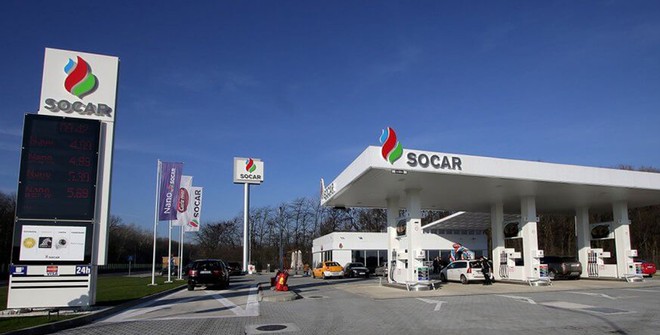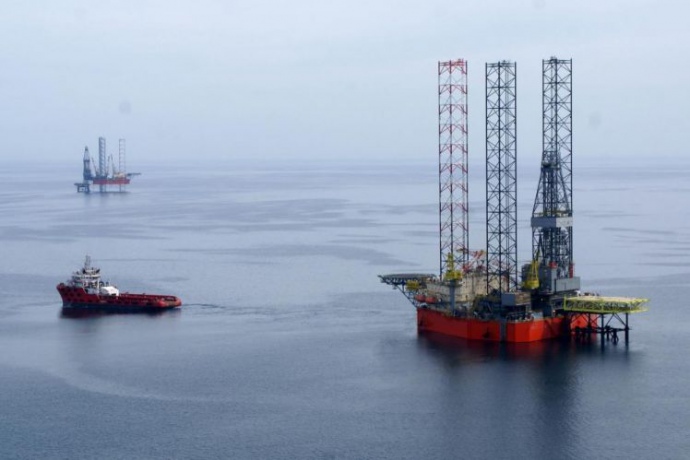Last week, the balance of power in Europe was finally formed, which many already understood, but hesitated to talk about it. The vote to restore the rights of the Russian delegation in PACE confirmed the already obvious alliance of Western European "pragmatists" with Eurasian autocracies, which almost unanimously supported the Kremlin's return to the circle of the continent's destiny.
The same union has long been operating in Ukraine, trying to bring our country to its knees before the main player in the gas market – “Gazprom”, depriving it of the status of a transit power. From the North the pipeline is being built by the first "pragmatist" of Europe - Germany, from the South – by the main autocracy - Turkey.
However, the market participants we interviewed are confident that the great Russian gas pipeline noose on the neck of Ukraine will not tighten if our country successfully implements projects for the commissioning of new gas fields. And after several years of hibernation and the failure of the state company "Ukrgazvydobuvannia" to significantly increase production, the government finally moved to action. In 2019, three rounds of online auctions for the distribution of promising subsoil plots have already been held, as well as applications for ten strategically important sites, for the development of which the state offers production sharing agreements to investors.
The main of these sites is on the sea near Odessa, and is called "Dolphin". There is real battle round it now – two American companies, Trident Acquisitions (created by major American investors, which in Ukraine are represented by the ex-People’s Deputy of the Russian state Duma Ilya Ponomarev) and Frontera Resources (which is associated with the People's Deputy Ihor Kononenko and Volodymyr Ihnashchenko, adviser to the Minister of Energy), one Ukrainian company – MC “Ukrnaftoburinya” (according to the media reports it is connected to the businessmen Ihor Kolomoiskyi, Pavlo Fuks and the People's Deputy Vitalii Homutynnyk) and another company –Caspian Drilling Company from Azerbaijan (which belongs to the orbit of influence of People's Deputy Andrii Ivanchuk and his childhood friend ex-Prime Minister Arseniy Yatseniuk). The latter, strictly speaking, is not an oil company, it itself does not produce anything anywhere, but is an experienced service organization that began drilling operations in the Caspian Sea in the Soviet era, and eventually turned into a "daughter" of the state oil company of Azerbaijan SOCAR. Being fully controlled by the state, which, when it was necessary, made a choice between declarations of support for Ukraine's sovereignty and Russian oil and gas interests, made a confident choice in favor of the latter, giving the Kremlin in Strasbourg the much-needed votes.
It was the Azerbaijani state-owned company that suddenly became the favorite of the Ukrainian competition. It appeared suddenly and has unclear goals. Why are they unclear? - Because it is very unusual for service companies to participate in production projects; they usually prefer to fulfill the drilling contract, without taking on geological risks, which are in abundance on the "Dolphin" site.
However, all these misunderstandings are easily explained, given who invited the CDC to the competition. As the contestants statedoff the record, it was Ilham Mammadov who well-known in the Ukrainian oil and gas market, who "passed the invitation" through the current Minister of Energy Ihor Nasalik.
The longstanding head of "Lukoil-Ukraine" is the representative of the interests of the Russian oil giant in our country, keeping the strategically important petrochemical plant "Karpatynaftokhim" for it. Both Mr. Mammadov and the head of “Lukoil” Mr. Alekperov are Azerbaijanis by nationality, and have a sufficiently large number of ties with the state bodies of Azerbaijan to ask them for a small service – to hide “Lukoil” entry into the Ukrainian shelf behind the state company controlled by them. For SOCAR itself it would be lightweight, but for the "daughter" - why not, in Putin's favorite "hybrid" style one can always disown, and write everything off the private initiative of management.

Moreover, unlike SOCAR, which has never invested in production outside the Caspian Sea, the interests of “Lukoil” in the Azov-Black sea region are well known. This company has both refining and oil-producing assets in Romania, has a marine license block on the Romanian shelf, and it was part of the projects in Azov. There is only one gray area – this company never does anything without the consent of the Russian government and President Putin personally. It thus entered Iraq in the midst of the war with the Americans in Venezuela (in the best years of the chavist regime), its gross activity in the Caspian Sea is clearly correlated with the pliability in negotiations with the Kremlin, Azerbaijani President Aliyev. It has just started the implementation of a new offshore project – was it not accidental that Azerbaijan's "correct" vote in PACE was held after that? And in our region, “Lukoil”, rather, has invested so far, only to block the success of the most promising projects – both on the black sea shelf and in the development of shale deposits in Romania. It's hardly an accident either.
The masks are unveiling today. How much should Ukraine give the right to develop a strategically important gas resource, so important in the confrontation with Russia, in the hands of the state, which has repeatedly proved its allied relations with the aggressor, and believe the financial promises of one of the closest investors to the Kremlin? There is a great doubt about that. However, the government of Ukraine, constantly emphasizing its patriotism, has every opportunity to understand the situation. There is not so much time left before summing up the results of the competition to find out who in this case will be given preference - as usual, domestic lobbyists like Fuks, Kononenko and Ivanchuk or American companies that will be able to really develop this direction.


